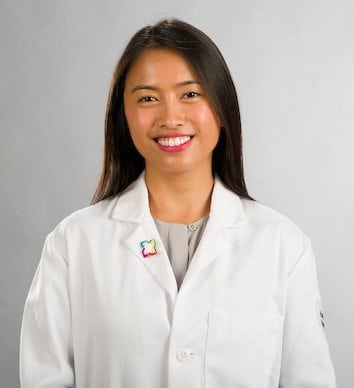It’s a fact that millions of people around the world suffer from intense migraines.
“Anyone who has ever had a migraine knows the feeling all too well,” said Dr. Abigail Chua, who practices in the Hartford HealthCare Headache Center, part of the Hartford HealthCare Ayer Neuroscience Institute. “Intense throbbing pain, extreme sensitivity to light, sound or smell, as well as nausea, vomiting, disorientation, confusion, inability to work and loss of focus are just some of the symptoms that a person with migraines can experience.”
Dr. Abigail Chua on an international study on non-invasive migraine relief currently underway in Connecticut:
A complex neurological condition, migraine affects approximately 14% of the world’s population and is ranked as the seventh leading cause of disability worldwide by the World Health Organization. Some studies indicate the financial impact of migraines to be billions of dollars per year because of the use of medications, emergency department visits and missed work time.
Migraines impact women more than men, are most frequent among people ages 35-55, and tend to run in families. Some people experience warning signs, which include vision issues or numbness in various parts of the body, while others get no advance notice at all. Some people have chronic headaches, which mean more than 15 per month, while others experience episodic migraines. According to Dr. Chua, “Regardless of the frequency of migraine attacks, each episode has the potential to cause significant pain and disability. This is because migraine is so much more than just a headache.”
No matter what category you fall in, the bottom line is that they are extremely painful, and usually misunderstood by people who have never experienced them.
“As a headache specialist, I have seen patients whose lives have been devastated by their migraines,” Dr. Chua said. “Well-meaning friends and family offer words such as ‘Oh, I get headaches too’ or ‘Why don’t you just take a couple ibuprofen?’ without realizing how hurtful those words can be. It can be difficult for migraineurs to convey the full impact of their migraine and even more difficult for persons without migraine to understand their pain’”
But migraines don’t need to be a hopeless condition. Although there is no cure, there are many treatment options available – from ice packs and caffeine to more complex treatments and procedures that can be offered by headache specialists such as Dr. Chua.
For more information about headache centers near you, call 860.696.2925 or visit www.hartfordhealthcare.org/services/headache-center.

